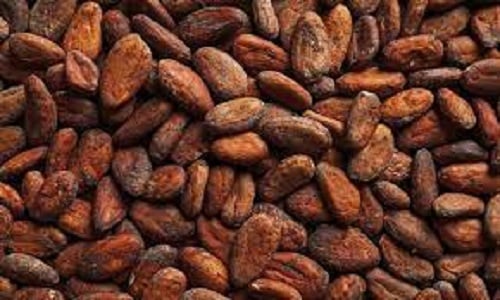Nigeria’s cocoa export to U.S. rises by 352%

Nigeria’s cocoa and derivatives export to the United States has been increasing in the last three years.
According to the International Trade Centre (ITC) trade map, export of cocoa beans, whole or broken, raw or roasted, alone rose from $2.058 million in 2018 to $9.307 million in 2020. Cocoa paste, whether or not defatted rose from $52,000 in 2018, dropped to $21,000 in 2019 and surged to $1.778 million last year.

Also, the value of cocoa butter, fat and oil exported in 2019 rose from $430,000 to $942,000 in 2020.
Altogether, United Nations COMTRADE database on international trade showed that United States’ imported cocoa and cocoa preparations worth $15.91 million from Nigeria last year.
A consultant to the World Bank, Prof Abel Ogunwale attributed the improvement to ongoing cocoa rejuvenation programme taking place across the country.
For instance, Cocoa Research Institute (CRIN) distributed 10 million cocoa seedlings last year. CRIN has said it would disburse additional five million seedlings to farmers this year.
These efforts, according to Ogunwale will transform cocoa cultivation, harvesting and processing to generate more revenue from production.
Improved cocoa varieties and increased utilisation of recommended chemicals, he noted, was bringing in some modest increases in crop yield.
He added that the sector can make more money from cocoa exports by processing it rather than transporting it raw overseas.
He expressed concerns about declining output due to aging and diseased trees, urging the government to support large rehabilitation and replanting schemes which provide farmers with improved planting materials, plant protection chemicals and fertilizers.
According to him, aging cocoa trees, poorly-managed plantations and drought have all played a role in the sector’s decline, adding that if production is to increase, efforts must be geared towards boost local production.
He stressed the need for stronger collaboration and research to increase its cocoa production as well as improve its quality to conform to global market requirements. According to him, there are incentives at attaining production goals.
The Director-General, African Centre for Supply Chain, (ACSC), Dr Obiora Madu, attributed the improvement in cocoa production to growing attempts by state governments to establish more plantations to contribute to a stable supply of high-quality cocoa. For instance, he added that states such as Ekiti, Osun and Ogun States were carrying out projects to boost cocoa production.
Most stakeholders put the nation’s cocoa annual output as approximately 250,000 tonnes, However, Cocoa Association of Nigeria(CAN0 President Mufutau Abolarinwa expects output to hit to an estimated 320,000 tonnes following expected rainfall which has helped boost output. Notwithstanding, he maintained that cocoa exporters, which rely on imported jute bags to package their beans, are facing a shortage after some Southeast Asian factories slowed production due to a surge in coronavirus cases. International buyers insist on packaging in hydrocarbon-free jute bags to preserve the beans’ quality. Nigeria, which doesn’t produce them locally, relies on imports from Bangladesh and India, which have been badly hit by the outbreak. “Nigeria might lose between $600 million and $700 million in cocoa beans export earnings if the current scarcity of hydrocarbon-free jute bags in the trade is not tackled urgently,” Mufutau Abolarinwa, president of the Cocoa Association of Nigeria, said by phone from Akure in Nigeria’s southwest.
Nigeria, which is the fifth-largest cocoa producer, could see its projected output of 300,000 metric tons for the 2021/22 season reduce to 225,000 metric tons due a high risk of flooding this year, according to the association.
This year, Nigeria shipped 7,000 metric tonnes of cocoa through the Calabar Port in Cross River State to the United States of America (U.S.A.) for the first time in about 14 years.
Starlink Global and Ideal Limited transported the 7,000 tonnes of cocoa through the Ecomarine Terminals in Calabar Port.
The Nation








